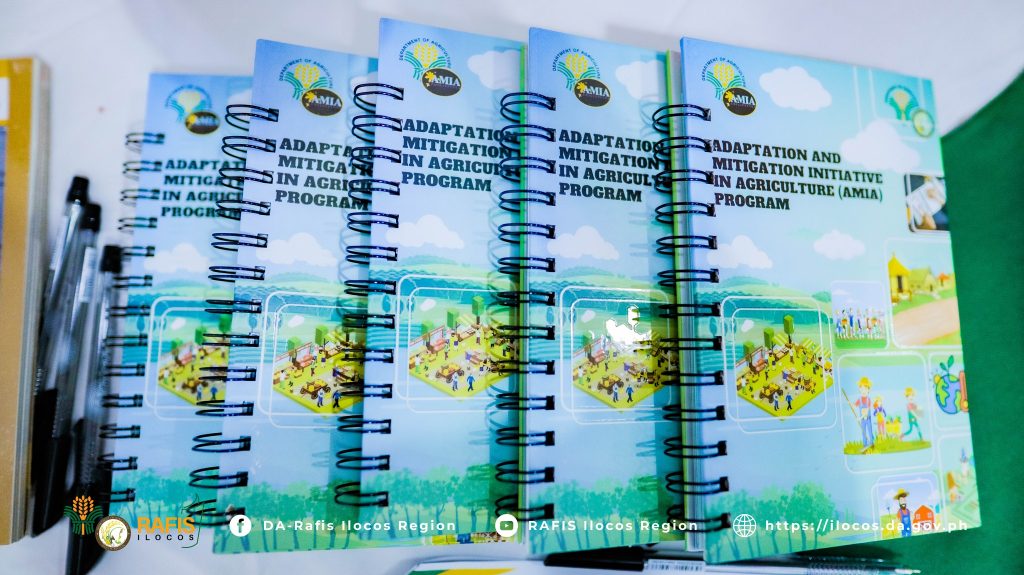In response to climate change and unpredictable weather conditions, Department of Agriculture Regional Field Office One (DA-RFO1) Adaptation and Mitigation Initiative in Agriculture (AMIA) Program invited over 50 LGUs and representatives for the Agro-Climatic Advisory Portal (ACAP) —a website designed to deliver agro-climatic advisory to farmers for the initiative of avoiding, adapting, and recovering from continue reading : “𝐀𝐯𝐨𝐢𝐝, 𝐀𝐝𝐚𝐩𝐭, 𝐑𝐞𝐜𝐨𝐯𝐞𝐫” — 𝐀𝐌𝐈𝐀 𝐢𝐧𝐭𝐫𝐨𝐝𝐮𝐜𝐞𝐬 𝐀𝐠𝐫𝐨-𝐂𝐥𝐢𝐦𝐚𝐭𝐢𝐜 𝐀𝐝𝐯𝐢𝐬𝐨𝐫𝐲 𝐏𝐨𝐫𝐭𝐚𝐥 𝐭𝐨 𝐈𝐥𝐨𝐜𝐨𝐬 𝐋𝐆𝐔𝐬
Archives
- November 2024
- October 2024
- September 2024
- August 2024
- July 2024
- June 2024
- May 2024
- April 2024
- March 2024
- February 2024
- January 2024
- December 2023
- November 2023
- October 2023
- September 2023
- August 2023
- July 2023
- June 2023
- May 2023
- April 2023
- March 2023
- February 2023
- January 2023
- December 2022
- November 2022
- October 2022
- September 2022
- August 2022
- July 2022
- June 2022
- May 2022
- April 2022
- March 2022
- February 2022
- January 2022
- December 2021
- November 2021
- October 2021
- September 2021
- August 2021
- July 2021
- June 2021
- May 2021
- April 2021
- March 2021
- February 2021
- January 2021
- December 2020
- November 2020
- October 2020
- September 2020
- August 2020
- July 2020
- June 2020
- May 2020
- April 2020
- March 2020
- February 2020
- January 2020


